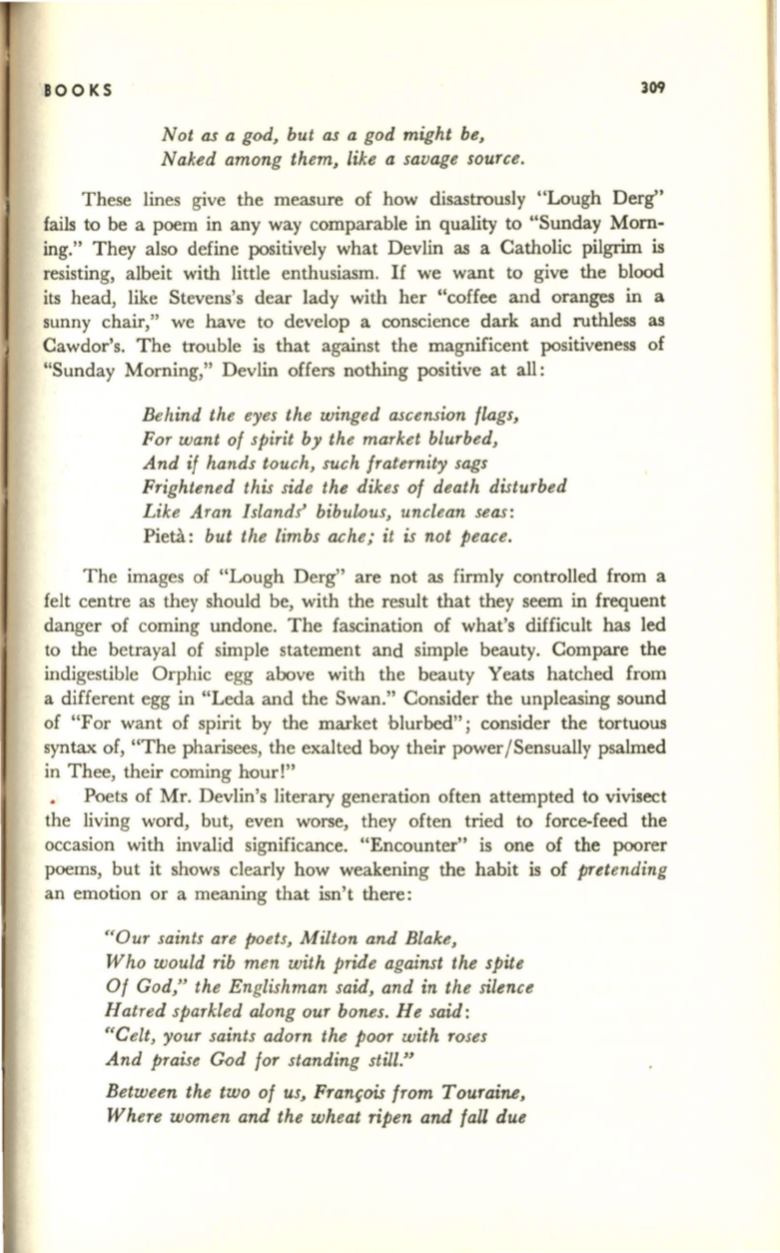
BOO KS
Not as a god, but as a god might be,
Naked among them, like a savage source.
309
These lines give the measure of how disastrously "Lough Derg"
fails
to
be a poem in any way comparable
in
quality to "Sunday Morn–
ing." They also define positively what Devlin as a Catholic pilgrim
is
resisting, albeit with little enthusiasm.
If
we want to give the blood
its head, like Stevens's dear lady with her "coffee and oranges
in
a
sunny chair," we have to develop a conscience dark and ruthless as
Cawdor's. The trouble is that against the magnificent positiveness of
"Sunday Morning," Devlin offers nothing positive at all:
Behind the eyes the winged ascension flags,
For want of spirit by the market blurbed,
And if hands touch, such fraternity sags
Frightened this side the dikes of death disturbed
Like Aran Islands' bibutous, unclean seas:
Pieta:
but the limbs ache; it is not peace.
The images of "Lough Derg" are not as firmly controlled from a
felt centre as they should be, with the result that they seem in frequent
danger of coming undone. The fascination of what's difficult
has
led
to the betrayal of simple statement and simple beauty. Compare the
indigestible Orphic egg above with the beauty Yeats hatched from
a different egg in "Leda and the Swan." Consider the unpleasing sound
of "For want of spirit by the market blurbed"; consider the tortuous
syntax of, "The pharisees, the exalted boy their power/Sensually psalmed
in Thee, their coming hour!"
Poets of Mr. Devlin's literary generation often attempted to vivisect
the living word, but, even worse, they often tried to force-feed the
occasion with invalid significance. "Encounter" is one of the poorer
poems, but it shows clearly how weakening the habit is of
pretending
an emotion or a meaning that isn't there:
((Our saints are poets, Milton and Blake,
Who would rib men with pride against the spite
Of God," the Englishman said, and in the silence
Hatred sparkled along our bones. He said:
((Celt, your saints adorn the po.or with roses
And praise God for standing still."
Between the two of us, Franfois from Touraine,
Where women and the wheat ripen and fall due


